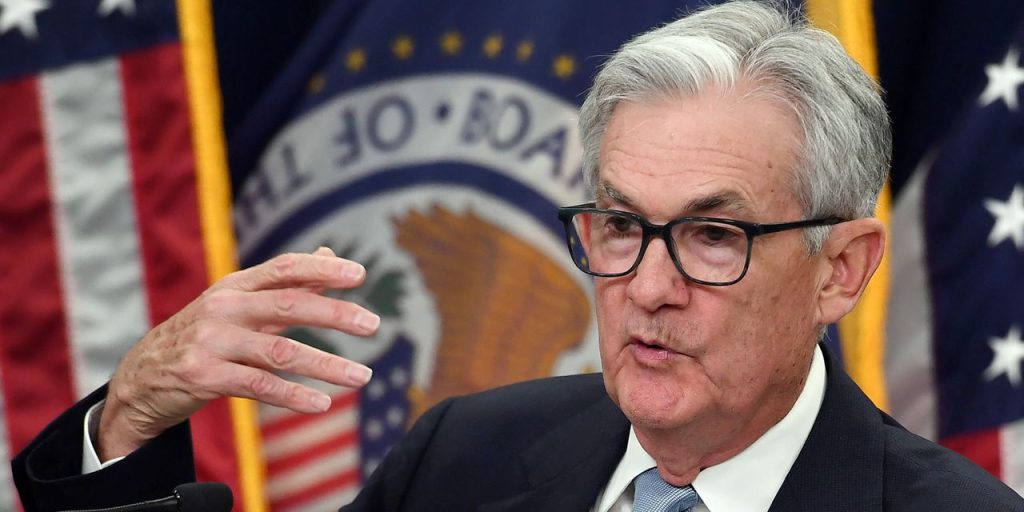Federal Reserve officials, meeting days after the collapse of Silicon Valley Bank, agreed that the stress in the banking sector would slow U.S. economic growth, but were uncertain about how much, according to minutes of the meeting released Wednesday.
The twelve voting members on the Fed’s interest-rate committee “agree that recent developments were likely to result in tighter credit conditions for households and businesses and to weigh on economic activity, hiring and inflation, but that the extend of these effects were uncertain,” the minutes said.
Members also said they would continue to be “highly attentive” to inflation risks.
Given their assessment of the potential economic effects of the recent banking-sector developments, the Fed’s staff now sees “a mild recession starting later this year with a recovery over the subsequent two years.”
The minutes also show that “many” officials said that the likely effects of the banking stress had led them to lower their estimate of the peak rate that would be needed to bring inflation under control, according to the minutes of the March 21-22 meeting.
Fed officials went ahead and raised the policy interest rate at the meeting to a range of 4.75%-5%. The vote to raise rates was unanimous. It was the ninth time in a row that the Fed hiked rates.
The minutes showed, however, that there was strong sentiment for pausing at the meeting.
“Several” officials noted that they considered whether a pause would be appropriate. They were persuaded that the Fed’s emergency efforts in coordination with other government agencies had helped calm conditions and lessen the near term risks.
In deciding to raise rates, officials said that inflation was much too high and some further rate hikes might be needed.
In their discussion about future moves, Fed officials said in light of the highly uncertain economic outlook, they would be “closely monitoring incoming information.”
Stress on banks was likely to cause them to raise lending standards, tighten credit and causing the economy to slow. The uncertainty could also cause consumers to pull back spending.
Slower demand could weigh on spending, which could help reduce inflationary pressure.
One downside risk was that banks could reduce the supply of credit by more than expected “which could restrain economic activity significantly,” according to the minutes.
There was little reaction to the minutes in financial markets. Stocks
DJIA,
-0.42%
SPX,
-0.21%
stayed higher and the yield on the 10-year Treasury note
TMUBMUSD10Y,
3.519%
ticked up to 3.43%.
Read the full article here




